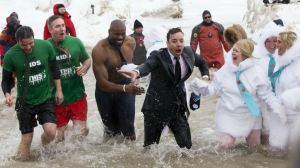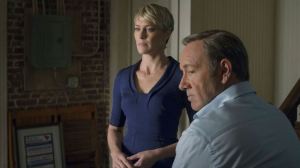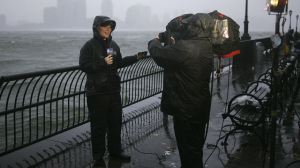
Thanks to Mitra Kalita for this suggestion. One month into Jimmy Fallon’s tenure as new Tonight Show host, I wrote this Quartz piece on how he’s doing better than NBC could have ever dreamed: keeping the show number one in late-night while also dominating his competitors online:
Yet while Fallon has successfully maintained Tonight’s ratings dominance while drawing a significantly younger audience, his biggest achievement during his first month is online, where for the first time, people are viewing and sharing Tonight Show clips in massive numbers. His 10 most-watched Tonight clips on YouTube over the past month (from Feb. 17, the day of his first Tonight Show, to Mar. 15) have all garnered more than 2 million views. In contrast, only five of Leno’s Tonight Show clips have ever been watched more than 1 million times on YouTube.
While Quartz is famous for its innovative approach to charts and graphs, very few of my stories lend themselves to including them. But for this one, I was able to contribute some of my very own, as I painstakingly charted the number of times Fallon’s, Jimmy Kimmel’s and David Letterman’s most popular clips had been viewed on YouTube.
The numbers make one thing clear: almost immediately, Fallon has made the Tonight Show relevant online in a way it had never been before with Leno at the helm. And in the process, he has validated NBC’s controversial decision to give him The Tonight Show despite Leno’s continued reign atop the ratings. Fallon’s commanding numbers—both on TV and online—have ended (at least for now) any second-guessing that Leno was ushered off too early.
Meanwhile, Fallon and Kimmel’s YouTube success illustrates a key way the late-night landscape has evolved since the early days of Leno vs. Letterman: it’s no longer enough of a coup to simply land a big star; you also have to do something unexpected with them. The majority of both Fallon and Kimmel’s most popular YouTube clips feature big stars doing unexpected things, as opposed to the standard talk show anecdotes that Letterman (and Leno) stick to.
Until I did this story, I was shocked at Letterman’s meager online presence versus his time slot competitors. And congrats to Fallon on a first month to be proud of.
Just one month in, Jimmy Fallon is already king of late night—and YouTube









